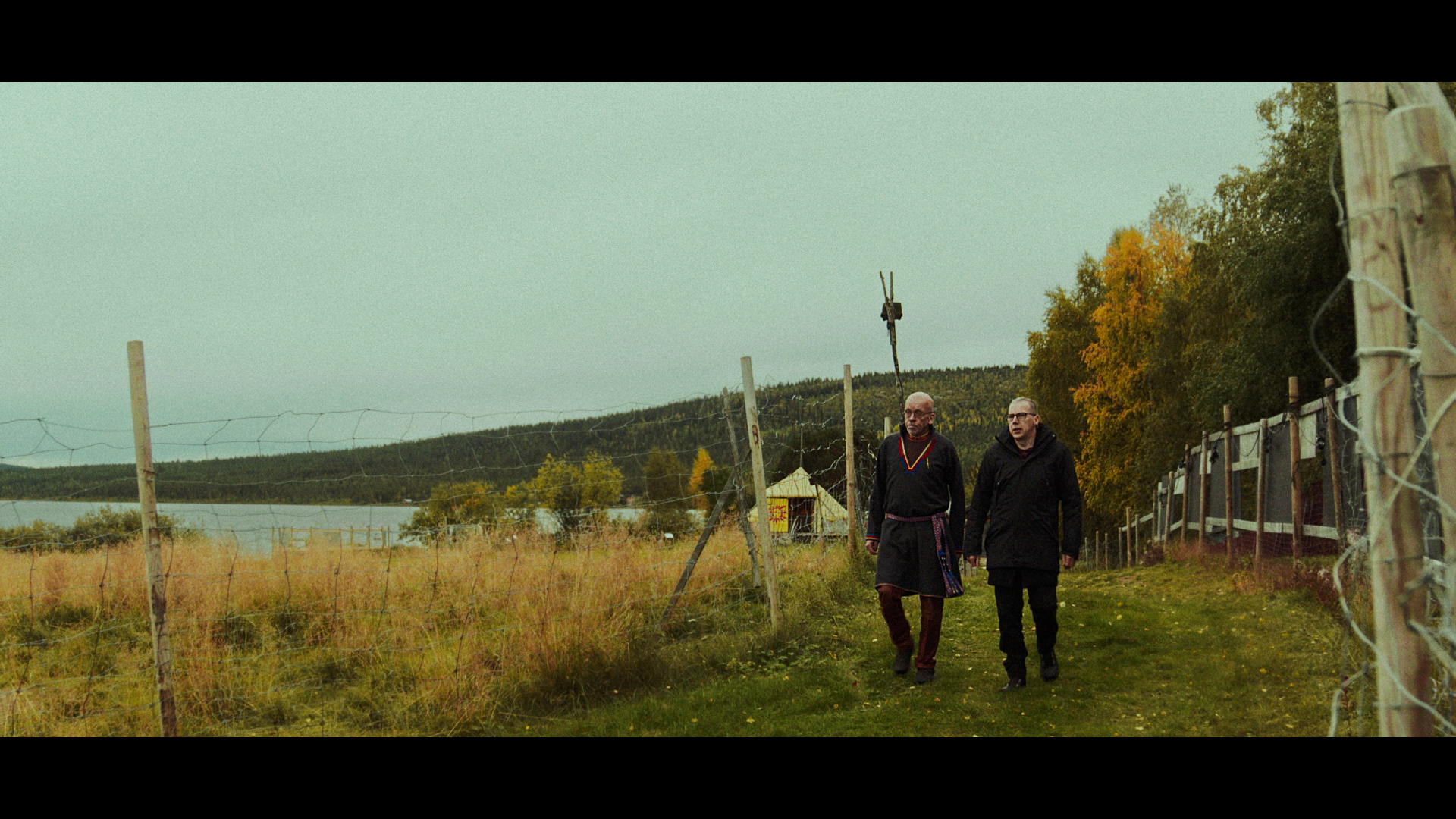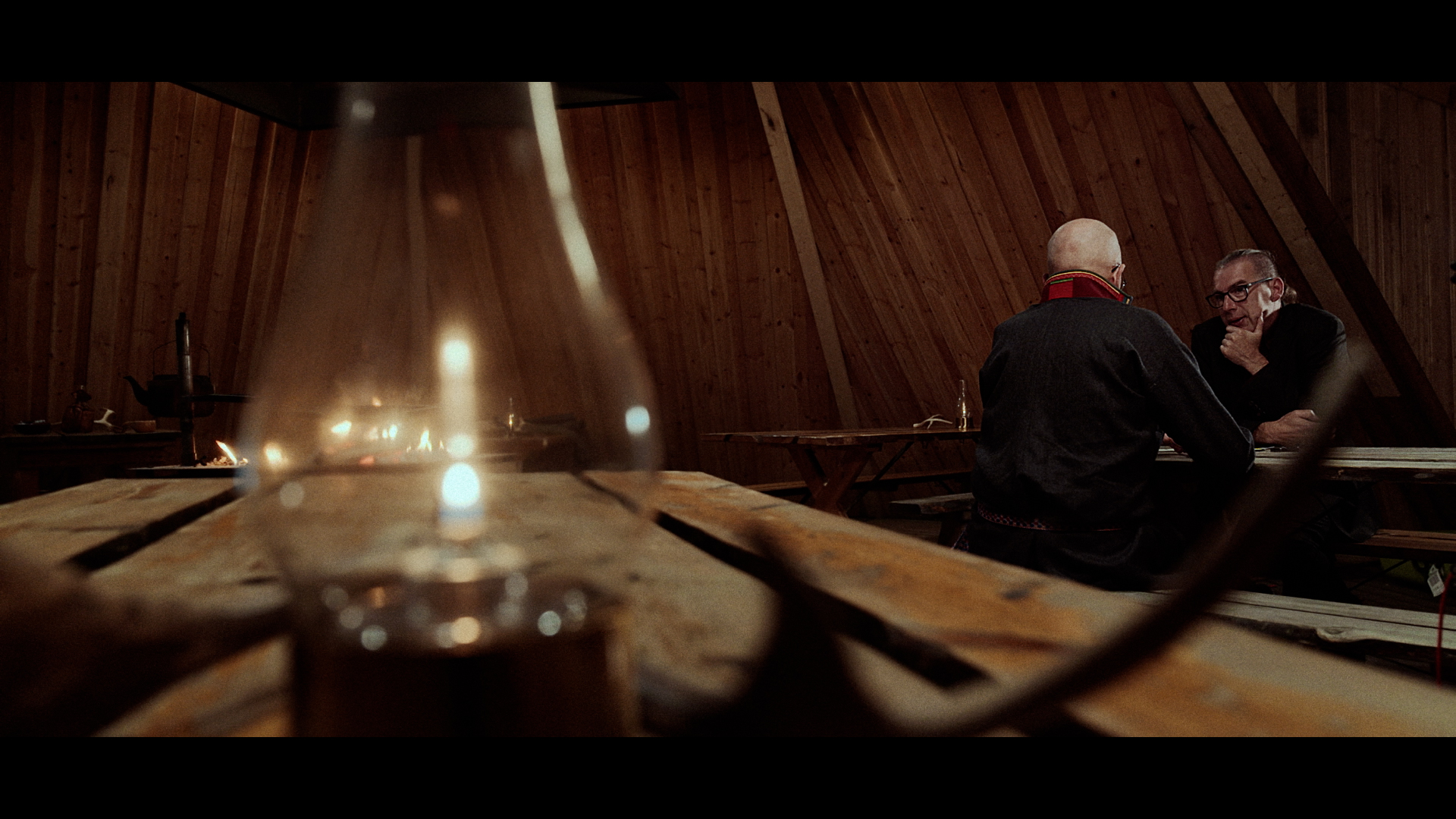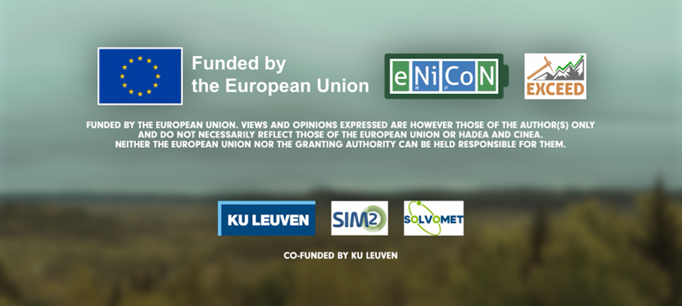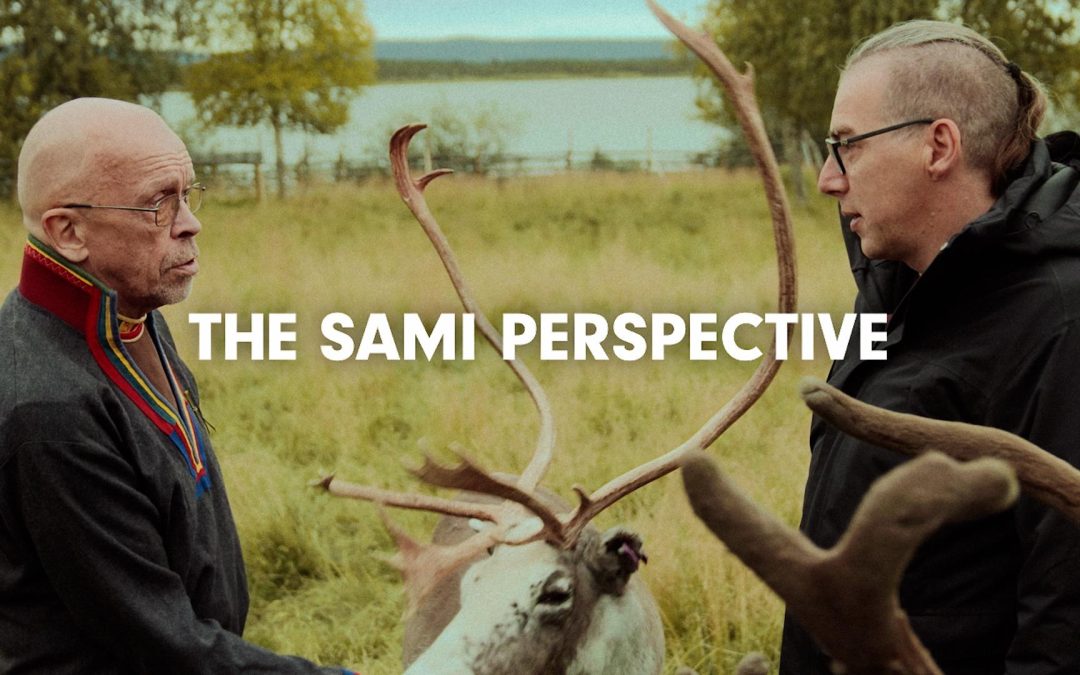Early 2023 the Swedish state-owned company LKAB sparked global press attention when it announced its discovery of “the largest rare-earth deposit in Europe”. Given the importance of rare-earth metals for the transition to clean energy and mobility, this discovery in the Arctic town of Kiruna (North Sweden) was highly symbolic for the EU. Turning this deposit into a mine could partially solve Europe’s dangerous rare-earth dependency on China. While the global press circled around the town of Kiruna, there was one vocal group who was not impressed with the plea for more energy-transition metal mining in the far North of Europe: the indigenous, reindeer-herding Sami communities. As part of the filming work that was done for the recently launched documentary “Made in Europe: from mine to electric vehicle”, the film’s presenter had a series of in-depth discussions with a key spokesperson from the reindeer-herding Sami communities in their homeland of Sapmi, along with other relevant stakeholders. In the new 12-minute mini-documentary “The Sami Perspective”, which is officially launched today, Peter Tom Jones tries to get to grips with the viewpoint of the reindeer-herding Sami communities. This new documentary by the KU Leuven Institute for Sustainable Metals and Minerals, in collaboration with Storyrunner, was developed with support from two Horizon Europe projects: EXCEED and ENICON.
[PDF-version of Joint Press Release: download here]
[Watch The Sami Perspective film here]
Europe’s Critical Raw Materials Act and rare-earth metals
On November 13, 2023, the Council and European Parliament reached a deal on the proposed regulation establishing a framework to ensure a secure and sustainable supply of critical raw materials (CRMs), better known as the Critical Raw Materials Act (CRMA). The Act sets benchmarks that specify that the EU should have the capacity to domestically extract 10%, process 40%, and recycle 25% of its annual consumption of strategic raw materials by 2030.
One specific group of CRMs are the so-called rare-earth metals, including neodymium and dysprosium. These metals are required in the permanent magnets that are used in the motors or generators for electric vehicles and direct-drive wind turbines. They are, thus, essential for the transition to a climate-neutral economy. However, for its supply of rare-earth metals, Europe is critically dependent on China, as is the case for many other CRMs.
Per Geijer
The announcement early 2023 by the Swedish state-owned company LKAB concerning its discovery of the “largest rare-earth deposit in Europe”, therefore sparked, unseen global press attention. The so-called Per Geijer deposit, which is located in the Arctic town of Kiruna (North Sweden), is a satellite deposit of the world’s biggest underground (operational) iron ore mine in Kiruna (also owned by LKAB). Given the importance of rare-earth metals for the transition to clean energy and mobility, the discovery was highly symbolic for the EU, as this deposit could partially solve Europe’s dangerous rare-earth dependency on China.
And, what is true for rare-earths, is also valid for many other strategic CRMs (e.g., lithium, nickel, cobalt, copper) for which Europe is critically dependent on a few third countries. By opening new energy-transition metal mines in Europe, the EU could strongly reduce its dangerous dependency on such countries. In a world that is increasingly turbulent and violent, and where supply chains for our clean technologies are under constant threat, this is no mean feat.

The Sami (reindeer-herding) perspective
However, not everyone was impressed with the Per Geijer announcement. The indigenous, reindeer-herding Sami communities are strongly opposed. In order to understand why (most of) the reindeer-herding Sami indigenous people object so strongly to mining, Peter Tom Jones decided to meet the charismatic Sami leader, Stefan Mikaelsson. As Deputy Chair of the Board of the Sami Parliament in Sweden, Mikaelsson has been one of the most vocal persons to defend the traditional Sami culture. Mikaelsson:
“We can live without metals, but we can’t live without food”.
For this exceptional encounter, Jones travelled to the Nutti Sámi Siida AB open air museum in Jukkasjärvi, as well as Kiruna town, where Jones visited the Sami Parliament and spoke to many local Kiruna residents. In order to provide a company perspective, Jones had a meeting with Anders Sand, the R&D Director of Boliden Mines, who explained how his company maintains a continuous dialogue with the Sami communities that live close to their Boliden mines in the area.
The goal of this mini-documentary is to provide the opportunity to the reindeer-herding Sami people to share their specific, local “Sami perspective” on the on-going discussion about mining of energy-transition metals in Europe. What started as a conversation about how mining impacts reindeer husbandry evolved into a broader discussion about the future of this planet, in view of the escalating global ecosystem crisis. How do we mitigate the climate crisis and what is the role of metals therein? Where do we need to get these metals from? How can mining be done in a responsible way? Why are, on a global scale, 54% of all energy-transition metal mines located on or near indigenous lands? Are European city dwellers hypocrites if they don’t want CRM-mines in “their backyard” but yet drive around in Tesla/BYD EVs and own multiple smart phones, laptops, tablets and other CRM-rich consumer devices, which undoubtedly contain metals that were once mined in indigenous territories? How can Europe defend itself against the Chinese juggernaut?
A fascinating documentary in which you can feel the pain and the respect of the film’s presenter for the reindeer-herding Sami perspective. This is only just the beginning of a highly complex discussion, as the reindeer-herding Sami only form one part of the overall Sami community in Norway, Sweden and Finland.

More information and contact details:
- Dr Peter Tom Jones, Director of the KU Leuven Institute for Sustainable Metals and Minerals, is available for interviews. See LinkedIn Profile.
- “The Sami Perspective” can be VIEWED HERE
- The film team: Stijn van Baarle (STORYRUNNER). Presenter: Peter Tom Jones (SIM2 KU Leuven). Camera man: Michael Van de Velde. Sound technicians: Casimir De Kimpe & Marius Acke. Graphic designer: Jasper Vander Elst
- “Made in Europe: from mine to electric vehicle” can be viewed here: https://vimeo.com/884346837
Acknowledgements
Funded by the European Union. Views and opinions expressed are however those of the author(s) only and do not necessarily reflect those of the European Union or HADEA and CINEA. Neither the European Union nor the granting authority can be held responsible for them. Co-funded by SOLVOMET R&I Centre, SIM2 KU Leuven.
SIM² KU Leuven. SIM² KU Leuven is the KU Leuven Institute for Sustainable Metals and Minerals, one of the flagship KU Leuven Institutes formally endorsed by the KU Leuven Academic Council. SIM² KU Leuven’s mission is to develop, organise and implement problem-driven, science-deep research and future-oriented education, contributing to the environmentally friendly production and recycling of metals, minerals and engineered materials, supporting the transition to a climate-friendly, circular-economy. More information: https://kuleuven.sim2.be/about/
SOLVOMET. SOLVOMET is KU Leuven’s Research and Innovation Centre for Circular Hydrometallurgy. We support mining, metallurgical and recycling companies in the development of more sustainable (circular, low-energy input) hydrometallurgical processes, using state-of-the-art lab and mini-pilot scale experimental facilities and modelling capabilities. SOLVOMET’s vision is that metallurgical chemistry expertise allows to develop more efficient eco-friendly hydrometallurgical and solvometallurgical processes to provide the critical metals that are needed for the transition to a climate-neutral society. More information: https://solvomet.eu/
Horizon Europe ENICON. ENICON is a Horizon Europe-funded Research and Innovation Action project. ENICON stands for “Sustainable processing of Europe's low-grade sulphidic and lateritic nickel/cobalt ores and tailings into battery-grade metals”. In view of a “domestic and foreign sourcing” procurement model, ENICON exploits the potential of (low-grade) Ni/Co resources within Europe – i.e. sulphidic Ni/Co ores and derived Ni/Co-bearing pyrite and silicate tailings, and laterite Ni(/Co) ores – while improving and developing the Ni/Co-refining capacity that can process imported ores, concentrates and intermediates. ENICON comprises both major improvements to existing Ni/Co metallurgical unit operations in Europe as well as the development of a new HCl-based route for both Ni/Co sulphide concentrates and laterites. More information: https://enicon-horizon.eu/about/
Horizon Europe EXCEED. EXCEED’s meta-objective is to unleash the full CRM and industrial mineral potential of Europe’s vast Li LCT-pegmatite and Rare-Metal Granite hard-rock resources. Using four premier European pegmatite and RMG case studies, EXCEED develops, upscales & demonstrates cost-effective, sustainable and responsible extraction routes for recovering the CRMs and industrial minerals as by-products from Li-bearing hard-rock ores. A suite of CRMs will be extracted and refined, while diverse industrial minerals will be refined and valorised in low-carbon building materials. More information: https://exceed-horizon.eu/


